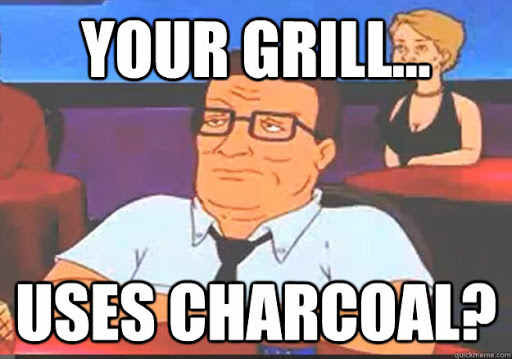
Interested in grilling but can’t decide between a charcoal grill and a gas one?
Today is your lucky day as I will explain in detail the pros and cons of charcoal vs gas grills.
Soon you’ll find out the differences in:
- Taste
- Safety
- Health issues
- Environmental impact
- Temperature
- Cost
In a hurry, or don’t like reading long texts? Then make use of these quick links:
Before We Get Started
The main thing that differentiates these two types of grills is the fuel that they run on.
Obviously.
Charcoal grills use charcoal for fuel while gas grills use either propane or natural gas.
For most gas grills, you will need a propane tank that you will have to fill with propane.
If you plan on using natural gas, then you will either have to get a pipe from your home gas supply for powering your grill or buy a model that specifically cooks on natural gas.
Find out more about propane and natural gas grills here to learn more about them and their differences.
There are other things that differentiate these grills other than the fuel that they run on and I will highlight some of them in this article so as to help you make the right decision if you are planning on acquiring a grill for the first time or are planning a switch from gas to charcoal and vice versa.
Let’s now get started on the pros and cons of these two grill types.
Charcoal Grills
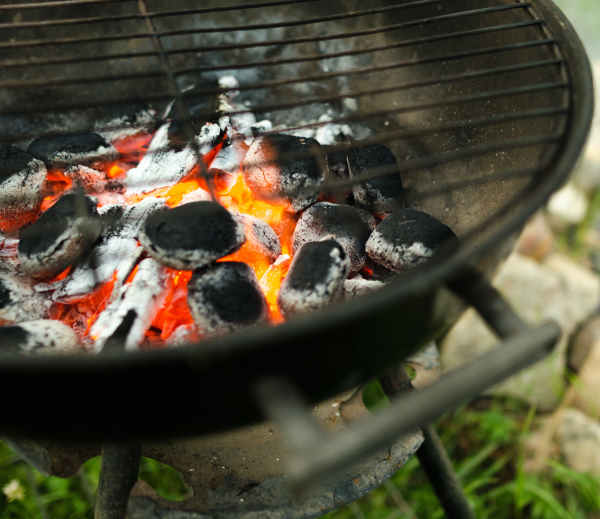
There are a few reasons why you should opt for a charcoal grill and one of them is the cost.
They are not that expensive with a decent model not going for more than $100.
Charcoal grills also offer the users the true cook-over-a-fire feeling that is unique only to them. They also produce smoke that gives the meals that you are cooking a distinct flavor.
However, they are more difficult to control than gas grills and this inconvenience is the reason why many new grilling enthusiasts don’t like them.
Choose the correct charcoal grill that will satisfy your needs.
The Advantages of Charcoal Grills
1. Cheap and Portable
As I have mentioned already, charcoal grills are inexpensive and with $100 you can get a pretty decent model.
They are also lightweight and portable. As such, you can take them with you on your travels.
2. Can Generate a Lot of Heat
Charcoal gets really hot.
High temperatures are ideal for searing.
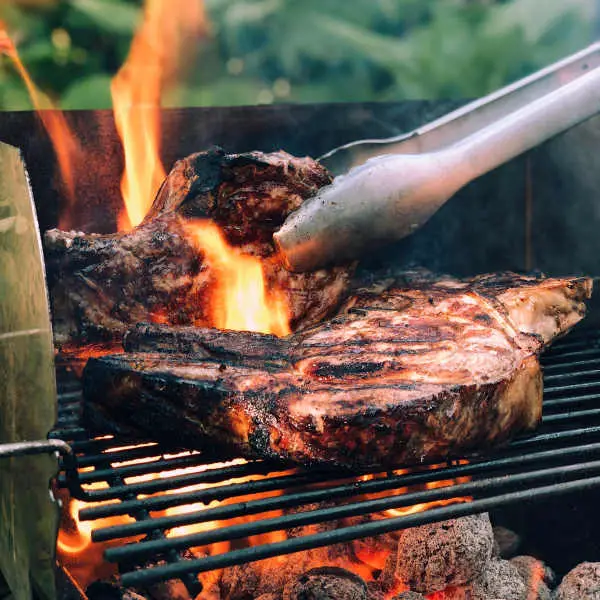
3. Uniqe Taste
If it is flavor that you are after, then charcoal grills are the kings.
Oils and fats drop to the burning charcoal to produce smoke that adds additional flavor.
4. Make One Yourself
If you really want to grill on charcoal but can’t afford one, then make one.
Charcoal grills are extremely simple contraptions, made from a bowl that holds the charcoal and the grates that hold the food.
5. Low Maintenance Cost
The only maintenance a charcoal grill needs is cleaning every once in a while.
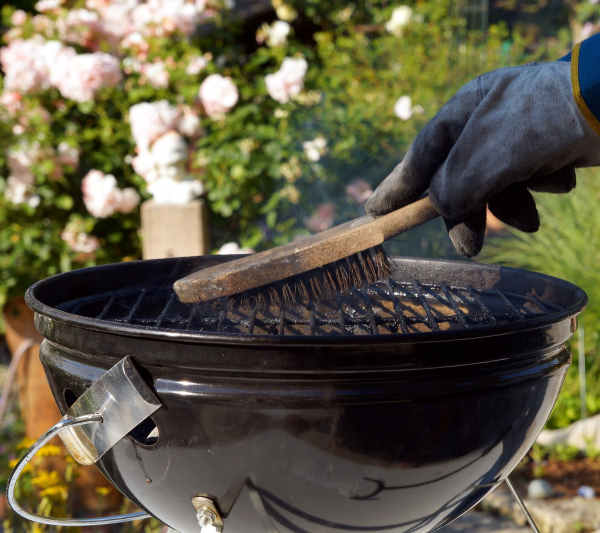
If something should break, like a handle or a leg, replacements parts are much cheaper and you can replace them yourself.
It’s difficult and expensive to replace a propane regulator on a gas grill.
The Disadvantages of Charcoal Grills
1. Lighting up the Coal Is Difficult
Lighting up the charcoal can be difficult, especially if you’re new to this.
Also, you’re not out of the woods just yet if you succeed in starting the fire as the flames can die out.
Most people use a charcoal chimney to light their coals to avoid this.
But keep in mind that this is another expense that you will have to deal with as most grills don’t come with one.
2. You Will Have to Clean up Afterward
Charcoal burns and makes ash which will make your cooking area not only dirty but also more susceptible to rust.
3. Difficult to Control
Controlling the heat generated by burning charcoal is another challenge that you will have to deal with.
4. A Bit of a Learning Curve
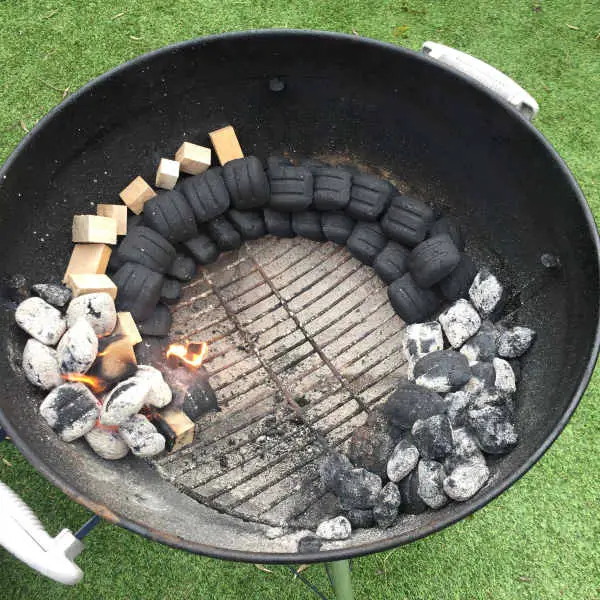
They are quite difficult to work with, especially if you’re new to this.
You have to figure out how many coals you need to reach the desired temperature, how to place them, how long they burn, how to control airflow, etc.
On a gas grill, most of this is done with a simple turn of the knob.
5. Are Prone to Hot and Cold Spots
Lump charcoal and briquettes, especially lumps, come in different shapes and sizes.
That’s why you can get uneven heating even when you spread them evenly across the entire grill.
6. Can Only Be Used Outdoors
Charcoal grills produce smoke, ash, loose embers, and tend to get very hot.
That is why you are forbidden to use this type of grill indoors.
Some landlords also don’t allow them on balconies.
It’s not a big deal if you have a backyard. But if you don’t have one (you live in an apartment complex, for example), then you’re going to have a bad time.
To Quickly Summarize
- Cheap and portable
- Can get really hot
- You can make one yourself cheaply and quickly
- Smokey flavor
- Low-maintenance
- Temperature control is difficult
- Learning curve
- Prone to hot and cold spots
- You can have trouble lighting up the charcoal
- Produce ash and take a while to clean
- Outdoor use only
Gas Grills
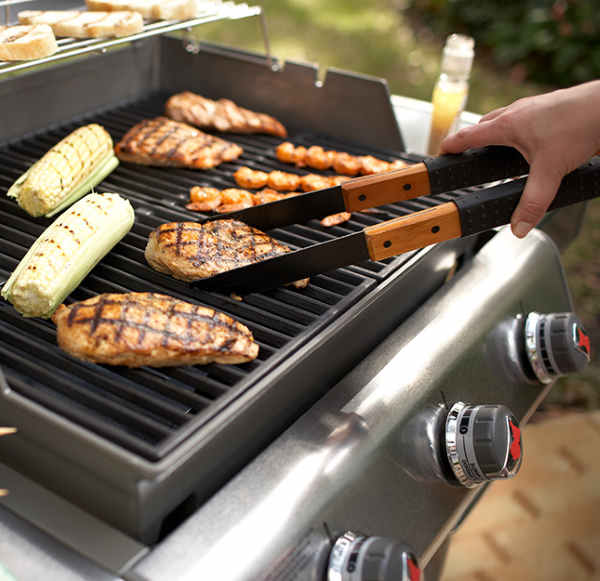
The Advantages of Gas Grills
Here are some of the benefits of cooking with a gas grill.
1. Easy to Regulate
Control the temperature with a simple twist of the knob.
2. Fast Heat Up
They heat up really quickly and this greatly reduces your cooking time.
3. The Propane Tank Guarantees You a Lot of Cookouts
A full 20 lb tank of propane will provide you with about 10 to 20 hours of cooking time, depending on the size of your grill and how you cook.
In general, expect the tank will last about 16 hours.
This is enough for many different occasions.
4. There Is No Ash to Clean Up
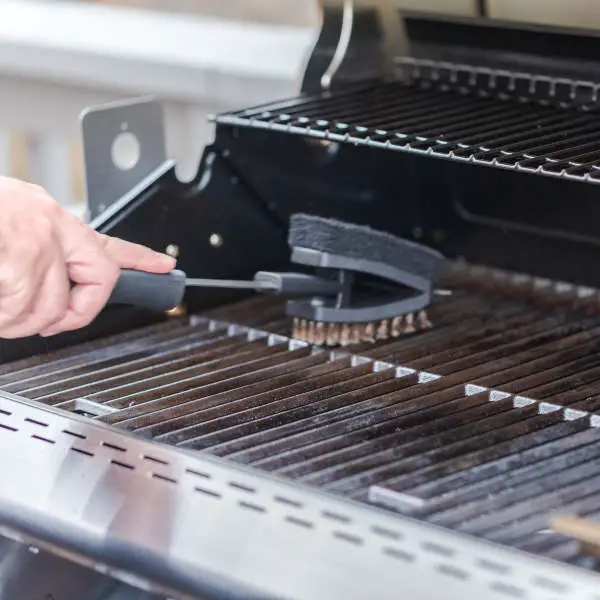
Gas grills don’t produce any ash and this means that there will be none of it to clean up when you are done cooking.
5. Convenience
Gas grills are easier to use than charcoal grills.
They have a knob that allows you to regulate the heat when cooking and this makes them convenient.
When you run out or are low on fuel, you just replace the propane tank (if you have a natural gas line, then you’re in luck as you have pretty much unlimited fuel) which takes only a few minutes.
With charcoal, you need to wait for the new coals to heat up and this takes time.
6. Cheaper Fuel
Propane is much cheaper than charcoal and natural gas is even cheaper than propane.
According to Crown Verity, you spend only $0.60 when you fire up your gas grill.
Because of this, you’ll less often replace your propane tank than a bag of charcoal, meaning you’ll save on time and gasoline because you won’t go to the store that often.
The Disadvantages of Gas Grills
Gas grills are not without drawbacks and some of them include:
1. Expensive

Gas grills are more expensive than their charcoal brethren.
A decent gas grill will cost you about $300 and there are others that cost a grand and even more.
The cost rises with an increase in the cooking surface and the number of burners.
The reason for this high price tag is their complexity: they have more components than charcoal grills.
More parts equal more money in case of breakage.
That’s why they are also more expensive to maintain.
2. You Will Need Wood Chips to Produce Smoke
Gas grills cannot generate smoke on their own.
You will have to add chips or pellets in order to smoke.
3. They Are a Safety Risk
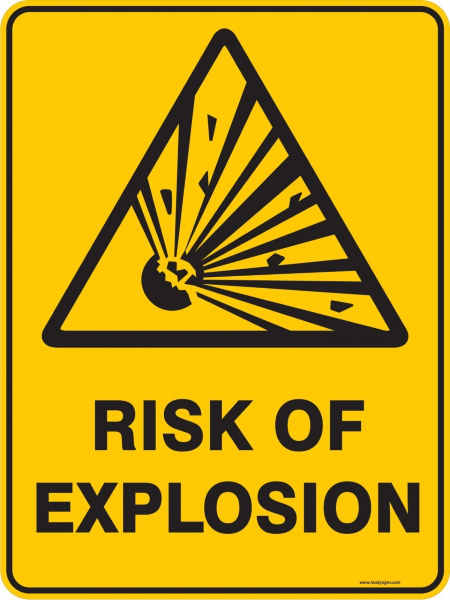
They can start a fire or even an explosion in your home or in the backyard.
4. Heavy
They’re much heavier than charcoal grills, meaning limited mobility.
This is especially true with full-sized models.
To Quickly Summarize
- Highly convenient in many aspects
- Fast and even heat up
- Low fuel consumption
- Cheap fuel
- Fast and easy cleanup
- Expensive to buy and upkeep
- Gas leaks present a huge safety hazard
- Don’t produce the distinct smokey flavor
- Bulky
The Differences Between Gas and Charcoal Grills
| Charcoal Grill | Gas Grill | |
|---|---|---|
| Fuel Source | Charcoal | Propane or Natural gas |
| Smokey taste | ||
| Safety* | Safer | Less safe |
| Health Issues | Tend to produce more carcinogens | Tend to produce fewer carcinogens |
| Enviromental Impact | Worse | Better |
| Temperature | Can reach high temperature with ease | Struggles |
| Maintenace Cost | Cheap | Expensive |
| Fuel Cost | Expensive | Cheap |
| Grill Cost | Cheap | Expensive |
| Temperature Control | Hard | Easy |
| Additional Features | Few, if any | Many |
| Indoor Use | , but not always | |
| Cooking time | More | Less |
*If you want to know more about charcoal and gas grilling safety, then take a look at this nifty infographic.
Charcoal vs Gas Grill Taste Test
Conclusion
Charcoal and gas grills are the most common grills that you can choose and this article highlights the pros and cons of charcoal vs gas grills.
It teaches you everything that you need to know about these popular grills.
In short, choose a charcoal grill if you have the time for cooking and love the smokey flavor.
If you’re strapped for time and/or have an emphasis on convenience in both cooking and cleaning, go for a gas grill.
In the end, if you can’t decide on either one then there are grills out there that accommodate both fuels – but this is beyond the scope of this guide.
Do you already own a grill?

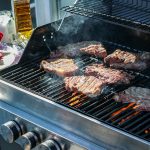
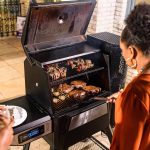
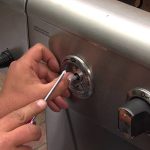

Be the first to comment